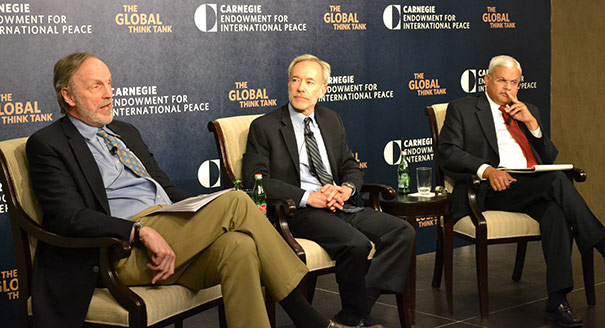Registration
You will receive an email confirming your registration.
China’s emergence as a major power in the increasingly vital Asia-Pacific region presents a major, long-term strategic challenge to the United States and its allies. Beijing’s growing military, economic, and political influence across the region, along with its avowed preference for a multi-polar security environment free from conventional alliances, call into question the future of the U.S.-led, post-WWII regional order centered on American maritime predominance and allied support.
How is Beijing challenging this order, and to what extent? How should Washington and its allies respond? Michael D. Swaine and Ashley J. Tellis have recently presented very different assessments—Swaine argues for a transition to a stable balance of power, while Tellis calls for an enhanced effort to sustain U.S. predominance. Carnegie hosted a lively discussion of this vital issue. The University of Pennsylvania’s Avery Goldstein moderated.
Michael D. Swaine
Michael D. Swaine is a senior associate at the Carnegie Endowment for International Peace and one of the most prominent American analysts in Chinese security studies.
Ashley J. Tellis
Ashley J. Tellis is a senior associate at the Carnegie Endowment for International Peace specializing in international security, defense, and Asian strategic issues.
Avery Goldstein
Avery Goldstein is the David M. Knott professor of Global Politics and International Relations at the University of Pennsylvania. His research focuses on international relations, security studies, and Chinese politics.
